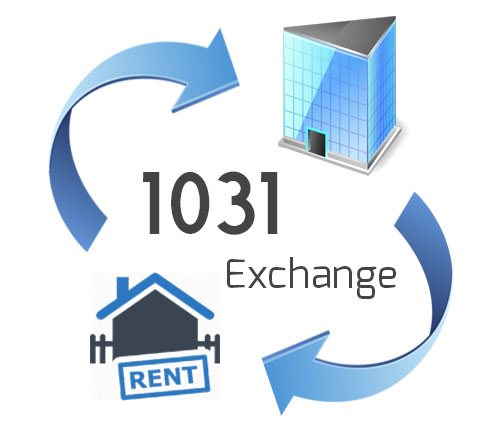When you own real property, that asset will generally appreciate in value over time, particularly if you own property in San Diego. When you sell that asset, capital gains tax will be due on the sale based on the appreciated value. A 1031 exchange is the method by which a person can sell an existing investment property (“relinquished property”) and defer all of the tax that would be due on the sale by purchasing a new investment property (“replacement property”). This is called a “like kind” exchange.
A 1031 exchange is facilitated through the assistance of a qualified intermediary. A qualified intermediary is a person who is not the taxpayer or a disqualified person. The role of the qualified intermediary is to step into the shoes of the taxpayer to handle the transaction, and to prevent the taxpayer from accessing any funds transferred during the exchange, which would violate IRC 1031. The qualified intermediary has a written exchange agreement with the taxpayer which allows the qualified intermediary to handle the receipt of the proceeds from the sale of relinquished property, and apply those funds toward the purchase of the replacement property. After the sale of the relinquished property, the taxpayer has 45 days to identify the new replacement property, and 180 days to close escrow on that new property purchase. The purchase price of the replacement property must be greater than the sale price of the relinquished property, otherwise there will be a taxable “boot” on the difference, and thus defeat the purpose of the exchange.
IRC section 1031(a) states that “no gain or loss shall be recognized on the exchange of property held for productive use in a trade or business or for investment if such property is exchanged solely for property of like kind which is to be held either for productive use in a trade or business or for investment.” In order to qualify for the exchange, both the relinquished property and replacement property must be held for investment purposes. A primary residence will not qualify for a 1031 exchange because a primary residence is not held for “productive use in a trade or business.” (IRS Rev. Ruling 59-229) At a minimum the relinquished property must produce rental income for 24 months before it can be sold in an exchange for it to qualify as an investment property. Similarly, the replacement property purchased will also need to produce rental income for at least 24 months after the close of escrow to qualify. The qualifying property can be residential or commercial.
IRS ruling 2008-16 (26 CFR 601.105) provides a safe harbor to allow vacation homes to be used as a relinquished or replacement property in a 1031 exchange. To do this, you must have owned the property for at least 2 years from the date of purchase and have rented the property at fair market value for at least 14 days or more per year in the successive two year period (ie/ Airbnb, VRBO, etc). The owner is not permitted to reside in the property for more than 14 days per year in each two year period, or not more than 10% of the days out of the year that the property is rented if its rented for more than 14 days.
It is extremely important for clients to have a qualified team of individuals to ensure the 1031 exchange is handled correctly. At a minimum this team should include a real estate or business attorney, a well-respected qualified intermediary company, escrow, and a tax advisor. Failure to complete the transaction properly and in accordance with IRS regulations could result in serious tax ramifications, penalties and interest on the transaction. If you are thinking about conducting a 1031 exchange, please contact our offices and we would be happy to assist you through this process.
This article is for informational purposes only and does not constitute legal advice. For specific questions related to this article, please contact the Law Office of Ashley M. Peterson, and we would be happy to answer whatever legal questions you may have.


Comments 3
Thanks for the information on 1031 exchanges. It sounds like they could be a great way to make more money. I’ll have to see if there’s professionals who can help me get started in this.
I have a rental property in Las Vegas.
I plan to build an ADU at a second home in San Diego.
Can I do a 1031 exchange between the two properties
Can this transaction qualify for a 1031 exchange or is the a tax beneficial way to do this ?
Thank you
Author
Thank you for your comment. More information is required to provide you with an answer. Please contact our office to discuss.